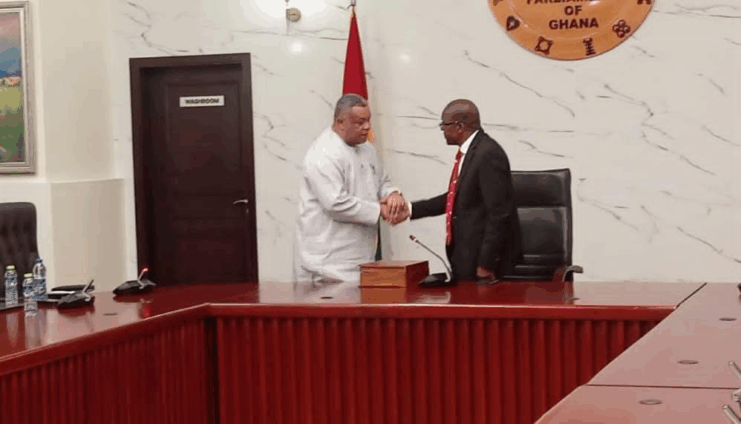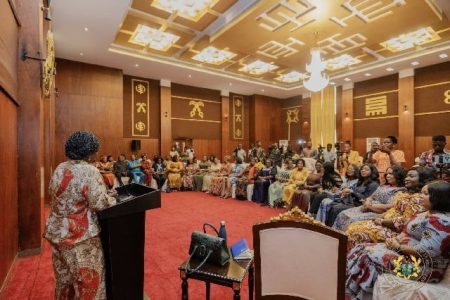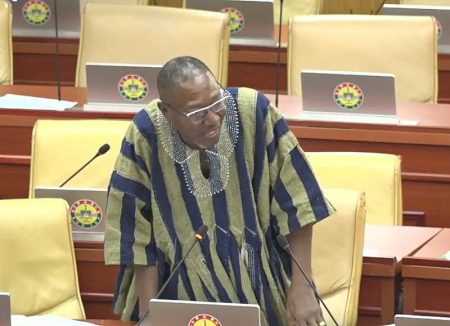Speaker Alban Bagbin’s announcement signifies a pioneering step in Ghana’s pursuit of a 24-hour economy, a key policy initiative of the National Democratic Congress (NDC). Parliament, as the first public institution to adopt this model, will transition to continuous operations, extending working hours significantly. This move is driven by the increasing workload faced by parliamentary staff and the government’s aim to create more employment opportunities. The shift will necessitate adjustments in staff schedules, with employees potentially working from 8:00 a.m. to 10:00 p.m. or 11:00 p.m., particularly those in the official division. Bagbin emphasized the substantial workload currently handled by Parliament, highlighting the need for increased staffing and operational hours. This initiative follows a recent change in Parliament’s sitting times, from 10:00 a.m. to 2:00 p.m., which has further intensified the pressure on support staff. The 24-hour operation within Parliament serves as a pilot program, offering valuable insights and experience before the policy’s nationwide implementation.
The 24-hour economy, slated for a full launch on July 2, 2025, represents a comprehensive strategy aimed at revitalizing Ghana’s economy through continuous activity. Presented by Presidential Advisor Goosie Tanoh, the policy framework rests on three fundamental pillars: transforming production, improving supply chain and market systems, and enhancing human capital. These pillars underpin the policy’s overarching goal of fostering sustainable economic growth and development. The phased implementation will commence with Parliament, gradually expanding to other sectors across the nation. This approach allows for a controlled rollout, enabling the government to monitor progress, address challenges, and refine the policy as needed. The success of this pilot program in Parliament will be crucial in informing the subsequent expansion to other public institutions and private sectors.
The “Grow 24” program focuses on modernizing agriculture, a crucial sector of Ghana’s economy, by promoting technological advancements, enhancing productivity, and ensuring food security. This modernization will involve investments in irrigation systems, improved farming techniques, and access to modern agricultural equipment. Furthermore, the program aims to create a more efficient and competitive agricultural sector, contributing to economic growth and job creation. “Make 24” targets industrial and manufacturing capacity, aiming to boost production, diversify the economy, and reduce reliance on imports. This involves supporting local industries, attracting foreign investment in manufacturing, and promoting value-added processing. The emphasis on local production is expected to create more jobs and stimulate economic activity within the country.
“Connect 24” focuses on streamlining logistics and distribution networks, optimizing transportation systems, and facilitating the seamless movement of goods and services. This initiative seeks to reduce bottlenecks in the supply chain, enhance efficiency, and lower costs for businesses. Improved logistics are crucial for increasing competitiveness, attracting investment, and promoting both domestic and international trade. “Aspire 24” is designed to cultivate a national mindset geared towards productivity, encouraging a culture of hard work, innovation, and continuous improvement. This program aims to foster a sense of national ownership and responsibility for economic development. By promoting a productivity-focused mindset, the government aims to empower individuals and businesses to contribute actively to the growth of the 24-hour economy.
The implementation of the 24-hour economy in Parliament provides a testing ground for the broader national rollout. By closely monitoring the impact on parliamentary operations, the government can gather valuable data and refine the policy framework to address potential challenges. This phased approach ensures a more strategic and sustainable implementation of the policy across various sectors. The success of this initiative will depend on effective coordination between government agencies, private sector stakeholders, and the general public.
The 24-hour economy holds significant potential for transforming Ghana’s economic landscape. By maximizing the utilization of resources, creating new employment opportunities, and fostering a culture of continuous productivity, the policy aims to stimulate economic growth and improve the lives of citizens. The success of this ambitious initiative will rely on careful planning, effective implementation, and ongoing evaluation. The lessons learned from the pilot program in Parliament will be invaluable in shaping the nationwide rollout and ensuring the long-term sustainability of the 24-hour economy.














